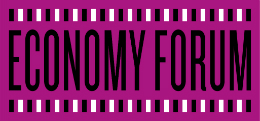
comment
Can America be great again?
Recorded at the Battle of Ideas 2016
In 2013, historian Perry Anderson observed that it is axiomatic for US foreign policy advisors that, ‘the hegemony of the United States continues to serve both the particular interests of the nation and the universal interests of humanity’. But troubled is the head that wears the crown of world domination. The US establishment is worried by the threat of domestic disorder, terrorist outrages and the rising powers in the East, notably China. It is also concerned by a range of social and economic problems: rising inequality, a failing school system, the burden of health care and obsolete infrastructure. Furthermore, ‘energy is wasted, R&D is insufficient, labour is under-skilled, finance is under-regulated, entitlements are out of control, the budget is in the red, the political system is overly polarised’. The current presidential election campaign confirms that elite confidence in US hegemony is not shared by substantial sections of the electorate. The rise of Donald Trump symbolises the scale of popular disaffection. According to Colombia historian Mark Mazower, his success – in parallel with populist politicians in Europe – confirms that ‘nationalism is back like it never went away’. Trump is riding ‘a populist insurgency’ seeking to restore the USA to its ‘rightful place in the world’. Trump appeals to widespread discontent over the impact of global economic forces, causing increasing inequality and insecurity, particularly in blue-collar communities.
Trump’s nationalist revival has an angry and defensive tone. It stands in stark contrast to the vision of John Winthrop’s Puritan evangelicals who, sought to build in Massachusetts Bay a ‘city on a hill’, an ideal society in the New World as an example to the Old. As the late Benedict Anderson observed, the spirit of nationalism forged in the American Revolution, based on ‘an imagined political community’ of creole pioneers, provided a model for nationalist movements – first in Europe, and subsequently throughout the colonial world. But, whereas the nationalist spirit of the founding fathers had a unifying and democratic character, that of Trump, with its anti-immigrant, anti-Hispanic and anti-Muslim tropes, seems divisive and reactionary.
Can America’s overwhelming military might continue to compensate for its chronic economic stagnation? Can the USA’s global cultural influence help it to hold off the competition of the rising powers of East Asia? Can any political alternative overcome the exhaustion and paralysis that appears to have overtaken the American system under the presidency of Barack Obama?
SPEAKERS
Professor Sarah Churchwell
chair of Public Understanding of the Humanities; Professor of American literature, School of Advanced study, University of London
Dolan Cummings
associate fellow, IoI; author, That Existential Leap: a crime story (forthcoming from Zero Books)
Alex Deane
managing director, FTI Consulting; Sky News regular; BBC Dateline London panellist; author Big Brother Watch: The state of civil liberties in modern Britain
Michael Goldfarb
journalist and historian, FRDH Podcast
Dr Kwasi Kwarteng
Conservative member of parliament for Spelthorne; historian; author, Ghosts of Empire and War & Gold
CHAIR
Dr Cheryl Hudson
lecturer in American history, University of Liverpool
To keep up with the IoI’s podcasts, add our RSS feed to your favourite podcast app.

comments archive

what's happening next

Tilting at windmills: are there downsides to a ‘green recovery’?
Monday 23 November, 7pm (UK time), online, via Zoom




CONTACT Rossa Minogue
BIOGRAPHY